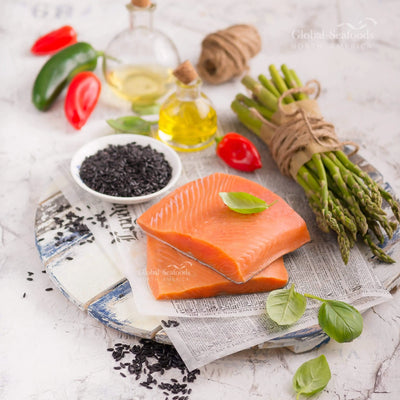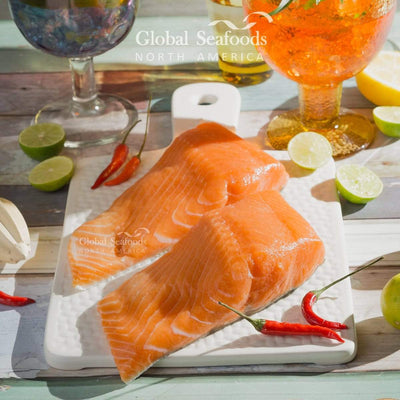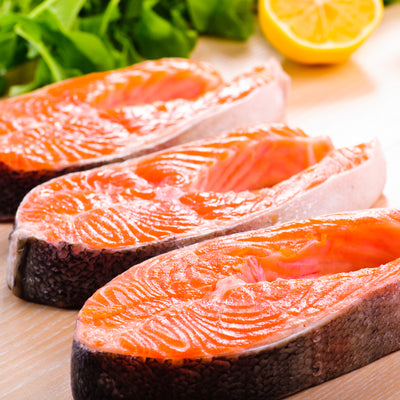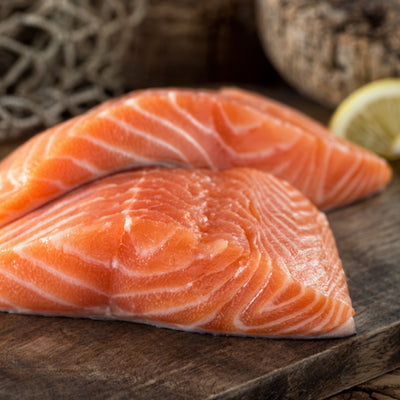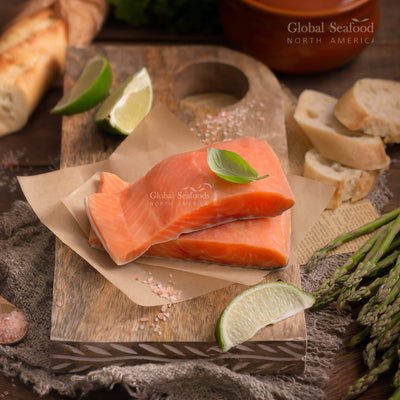8 Reasons You Should Be Eating Seafood for a Healthier Life

You Should Be Eating Seafood – 8 Powerful Reasons to Include It in Your Diet
The ocean provides an abundance of nutritional treasures, and seafood stands at the forefront of this natural harvest. From boosting heart health to supporting brain function, seafood is one of the most nutrient-dense and versatile food choices available.
In this article, we’ll explore the top 8 reasons why seafood should be a staple in your diet, backed by scientific research and expert insights.
1. Rich in Essential Nutrients
Seafood is one of the most nutrient-dense foods on the planet, providing:
✔ High-Quality Protein – Crucial for muscle repair and overall body maintenance.
✔ Vitamin D – Supports bone health and immune function.
✔ Vitamin B12 – Essential for brain function and energy production.
✔ Iron, Zinc, & Iodine – Important for oxygen transport, immune support, and thyroid health.
📌 Dr. Michael Holick, a leading Vitamin D expert, states: "Seafood is one of the few natural food sources of Vitamin D, making it a crucial dietary inclusion."
2. Boosts Heart Health
Eating seafood twice a week can significantly reduce the risk of heart disease, thanks to its high levels of omega-3 fatty acids (EPA & DHA). These healthy fats:
✔ Reduce Inflammation – Lowers chronic disease risk.
✔ Lower Blood Pressure – Improves circulation and heart function.
✔ Reduce Triglycerides – Helps maintain healthy cholesterol levels.
📌 According to the American Heart Association, "Eating fish regularly is one of the best dietary habits for heart health."
3. Supports Brain Function & Mental Health
Omega-3-rich seafood enhances cognitive function and reduces the risk of neurodegenerative diseases like Alzheimer’s.
✔ Improves Memory & Focus – Supports learning and brain function.
✔ Lowers Risk of Dementia – Studies show omega-3s reduce cognitive decline.
✔ Enhances Mood – Reduces depression and anxiety symptoms.
📌 Dr. Joseph Hibbeln, a researcher at the National Institutes of Health, states: "Higher levels of DHA are associated with improved cognitive outcomes in children and adults."
🦀 Support Brain Health with Seafood
4. Aids in Weight Management
Seafood is high in protein but low in calories, making it perfect for weight management.
✔ Boosts Metabolism – Lean protein increases calorie burning.
✔ Promotes Satiety – Keeps you full longer, reducing cravings.
✔ Low-Calorie Options – Fish like cod, shrimp, and tilapia are low in fat but high in nutrients.
📌 Dr. David Katz, a nutrition expert, explains: "Seafood is a lean protein source that supports weight loss while maintaining muscle mass."
🦀 Shop Lean, High-Protein Seafood
5. Safe & Beneficial for Pregnancy
Seafood is essential for fetal brain development, making it a must-have for pregnant women.
✔ Omega-3s (DHA) – Crucial for brain and eye development.
✔ Improves Maternal Health – Supports heart function and reduces preterm labor risk.
✔ Choose Low-Mercury Options – Salmon, sardines, and trout are safe choices.
📌 Dr. Emily Oken from Harvard Medical School states: "Adequate DHA intake during pregnancy improves cognitive outcomes in children."
6. Culinary Versatility – Endless Ways to Enjoy
Seafood is incredibly versatile and can be cooked in numerous ways:
✔ Grilled – Salmon, tuna, and swordfish for a smoky, bold flavor.
✔ Baked – Cod, halibut, and haddock for a light, healthy meal.
✔ Fried – Shrimp, calamari, and catfish for a crispy, indulgent dish.
✔ Sushi & Sashimi – Fresh tuna and salmon for a clean, delicate taste.
📌 Dr. Mark Hyman, a leading functional medicine expert, says: "Seafood's versatility makes it a go-to option for both health-conscious and adventurous eaters."
🦀 Explore a Wide Variety of Seafood
7. Environmentally Sustainable Protein Source
Seafood is one of the most sustainable protein sources when sourced responsibly.
✔ Sustainable Fisheries – Certified by Marine Stewardship Council (MSC).
✔ Lower Carbon Footprint – Seafood has less environmental impact than beef or pork.
✔ Responsible Aquaculture – Farm-raised fish can reduce overfishing.
📌 Dr. Jane Lubchenco, a marine ecologist, highlights: "Sustainable seafood practices ensure food security while preserving ocean biodiversity."
🦀 Shop Sustainably Sourced Seafood
8. Promotes a Diverse & Balanced Diet
Adding seafood to your diet increases nutrient variety, ensuring a broad spectrum of vitamins and minerals.
✔ Fatty Fish (Salmon, Mackerel) – Rich in Omega-3s.
✔ Shellfish (Oysters, Clams) – High in Zinc and Iron.
✔ Whitefish (Cod, Halibut) – Lean and low-calorie.
📌 Dr. Walter Willett from Harvard T.H. Chan School of Public Health states: "A diverse diet that includes seafood ensures optimal nutrition and long-term health."
🦀 Explore a Diverse Selection of Seafood
FAQs About Eating Seafood
Q1: Can I Eat Seafood Every Day?
✔ Yes, but vary the types of seafood you eat to balance nutrient intake and avoid excess mercury.
Q2: What’s the Healthiest Seafood to Eat?
✔ Salmon, sardines, and mackerel for omega-3s.
✔ Oysters and mussels for zinc and iron.
✔ Cod and halibut for lean protein.
Q3: How Can I Ensure My Seafood is Sustainable?
✔ Look for MSC-certified seafood and buy from reputable sources.
🦀 Shop Certified Sustainable Seafood
Conclusion – Make Seafood a Part of Your Healthy Lifestyle
Seafood is a nutritional powerhouse that supports heart health, brain function, weight management, and overall well-being.
✔ Packed with essential nutrients
✔ Versatile for any cuisine
✔ Sustainably sourced options available
📌 Make seafood a staple in your diet for better health and a delicious dining experience!
🦀 Order High-Quality Seafood from Global Seafoods
📺 Watch Seafood Cooking Tips & Recipes on YouTube
➡ Subscribe to Global Seafoods YouTube
Also in News

How to Make Sea Bream Sushi With Dry-Aged Tuna & Crab Roll — Step-by-Step With Chef Joshua
A complete guide to making Sea Bream sushi at home, including filleting, curing, slicing, and building a Dry-Aged Tuna & Crab sushi roll. Chef Joshua shares professional tips for restaurant-quality results.

Cooked Crab for Game Night: Everything You Need for a Perfect Seafood Party
Take your game night to the next level with a Cooked crab party. Learn the best recipes, cooking tips, and hosting hacks for a memorable seafood feast.

Steam Crab for Date Night: A Romantic Guide to the Perfect Seafood Feast
Make your next date night unforgettable with a romantic Steam crab experience. This guide covers everything you need to know, from ambiance to the best crab varieties.



